
Guide
Kitchen gadgets I never use
by Simon Balissat
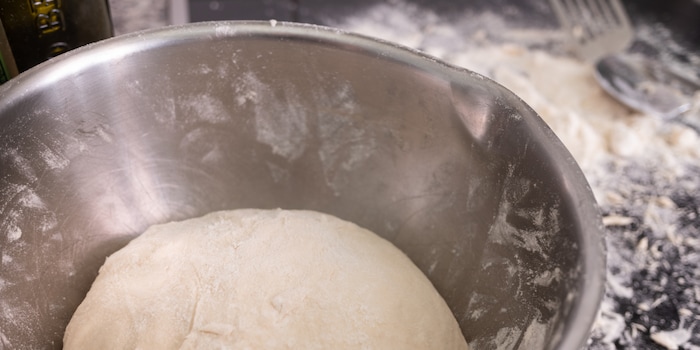
I've never baked a good loaf of bread. In fact, I've never eaten good home-baked bread. Why actually? One last attempt.
I always have the same criticisms when I'm served home-baked bread. Either the crust is missing, it hasn't risen properly or the bread is too dry or too moist. And homemade bread is almost always bland. "We try not to use too much salt" is the poor excuse for the flavourless baked goods.
I have also tried baking bread myself a few times. The result was never satisfactory. Baking bread is a closed book. I want to change that now. In the coming days and weeks, I'm going to try to make bread that's really good.
White flour, water, salt and yeast are the ingredients I want to use. I consciously start with the basics. If I succeed, I can experiment with other types of flour and dough. Because my previous attempts in a normal oven have always failed, I'm venturing into a trend that I've been coming across for a few years now. Baking bread in a casserole.
The idea behind it is obvious. The enclosed space means more steam remains in the pot. This means that the crust doesn't form too quickly and the bread has more time to rise in the oven. My first recipe comes from Tasty. They're the ones with those short recipe videos where everything looks mega when it's ready.
Ingredients
Procedure
Pour the dough into the preheated casserole, bake for 30 minutes with the lid on, then remove the lid for the last 15 minutes
The dough promises to work without kneading. Mix the water and dry yeast and leave to stand for ten minutes, mix the flour and salt, pour everything together and mix until a dough forms that can still be detached from the side of the bowl. Cover and leave to rise for two hours. Then "fold" the dough onto itself from all sides in the bowl and leave to rise again. So far, so good. Except...
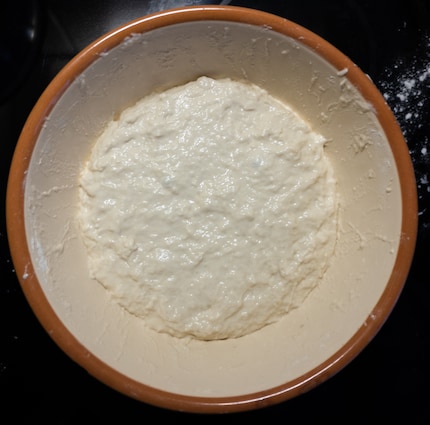
The dough seems very runny to me, but it obviously has to be. I deliberately checked the quantities again and found a second recipe that is very similar. Of course, disaster strikes anyway. The dough runs on the glass ceramic hob and sticks.
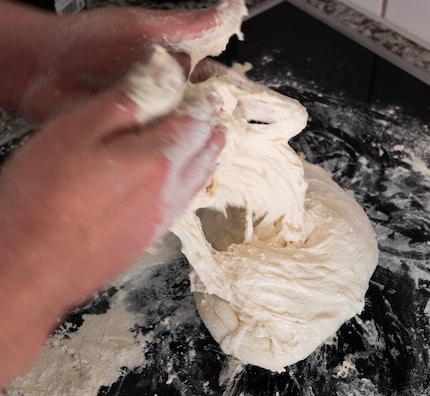
It must take another hundred grams of flour to form something like a ball of dough. The mess is gigantic, me and the dough are two piles of misery and I actually want to give up at this point. The bread from the bakery always tastes better anyway. But now that I've spent five hours making a blob of flour, water, yeast and salt that weighs several kilos, I might as well put it in the casserole and put it in the oven. It couldn't get any worse. So off into the preheated casserole on a piece of baking paper and bake for 45 minutes.
The result?
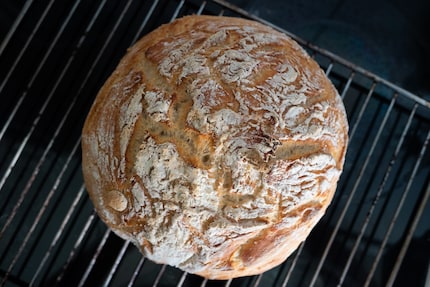
This looks better than my first attempts. The crust is nice and crispy and the inside is quite fluffy. But I'm still not satisfied. The bread isn't dry, but still falls apart when buttered. It's also a little under-salted for my taste. I will try 12 grams of salt per 500 grams of flour next time.
As far as the consistency is concerned, I can only make assumptions. As I didn't have to knead the dough and it "only" rested for five hours, this could be a problem. The gluten didn't have enough time to develop and form bonds.
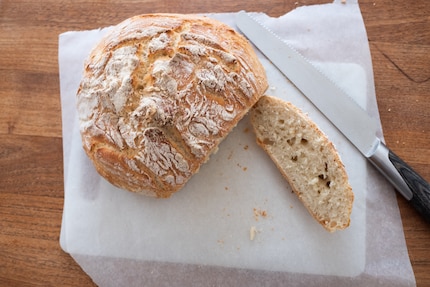
Gluten is a protein found in wheat that acts as a kind of glue. It forms a net that traps gas bubbles in your dough and makes it nice and airy. Gluten can only form when the flour comes into contact with water. However, the gluten strands need time to develop. That's why dough should always be left to rest so that gluten strands can form for as long as possible, which in turn trap more gas bubbles and make your bread more stable.
The six hours may not be long enough. The bread wasn't stable enough. For my next attempt, I'll use less water, more salt and leave the dough to rest for 20 hours. Or have I missed something?
When I flew the family nest over 15 years ago, I suddenly had to cook for myself. But it wasn’t long until this necessity became a virtue. Today, rattling those pots and pans is a fundamental part of my life. I’m a true foodie and devour everything from junk food to star-awarded cuisine. Literally. I eat way too fast.
Practical solutions for everyday problems with technology, household hacks and much more.
Show all